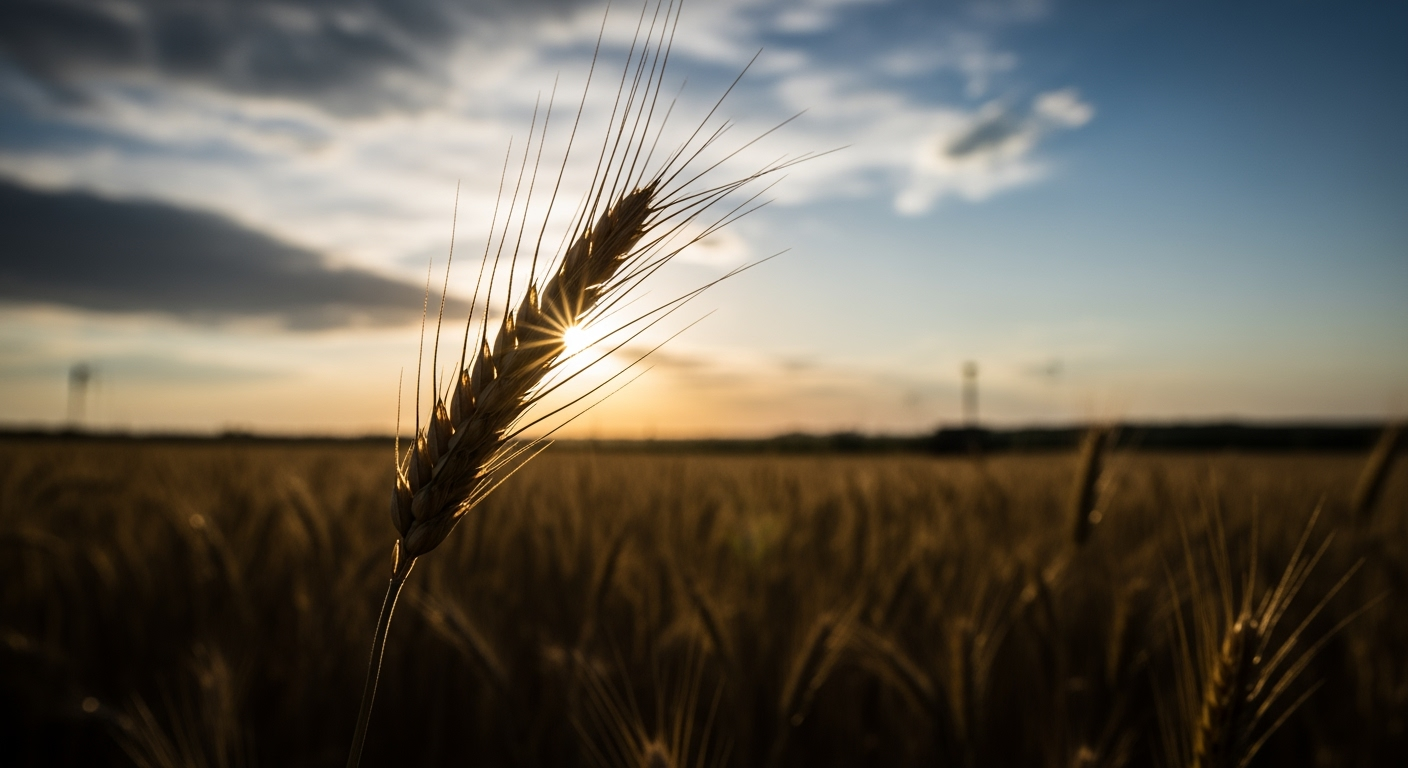Related Articles

China's Ambitious Pursuit: Challenging America's AI Dominance




On World Food Day, observed annually on October 16 to underscore the urgent need for global food security, the international community reflects on the fragile state of global sustenance. This year, the focus intensifies on Ukraine, a nation historically hailed as the "breadbasket of Europe," whose ability to feed the world has been profoundly tested by ongoing conflict. Despite immense challenges, Ukraine continues to play a critical, albeit altered, role in maintaining global food supplies, even as the specter of hunger looms for millions worldwide.
Before the full-scale invasion in February 2022, Ukraine was a colossal force in global agriculture. Renowned for its fertile black soil, the nation was among the top exporters of cereals and oilseeds, supplying staples like wheat, corn, and barley to hundreds of millions across the globe. The country accounted for an average of 9-11% of global wheat exports and 13-16% of global corn exports, making it the second-largest cereal exporter globally in 2020, behind only the United States. Its agricultural output was so substantial that it fed an estimated 400 million people annually.
The onset of the conflict brought this critical system to a grinding halt. Russian military actions, including the blockade of Ukraine’s Black Sea ports and widespread logistical disruptions, severely curtailed the nation's export capabilities. Grain production in Ukraine and exports plummeted, with reductions of approximately 40% and 30% respectively in 2022 compared to 2021. This disruption immediately sent shockwaves through global markets, driving food prices to an all-time high in March 2022 and pushing an additional 71 million people into poverty. Infrastructure was damaged, fields became mined, and vital agricultural inputs like fertilizers were disrupted, collectively reducing yields and exacerbating the crisis. Reports also surfaced accusing Russia of stealing nearly 6 million metric tons of Ukrainian wheat from occupied territories.
In response to the escalating global food crisis, international efforts led to the creation of the Black Sea Grain Initiative (BSGI) in July 2022. This United Nations-brokered agreement, signed by Ukraine, Russia, and Turkey, provided a humanitarian maritime corridor for Ukrainian grain to safely leave three key Black Sea ports. The initiative proved crucial, facilitating the export of over 27 million metric tons of grain and other foodstuffs by April 2023, representing a 170% increase from the months preceding the agreement. This influx of supply helped to temper soaring global food prices, which began to recede by December 2022. Maize, wheat, and sunflower products were the leading commodities exported under the initiative.
However, the BSGI faced persistent challenges and was ultimately terminated by Russia in July 2023. Despite this setback, Ukraine quickly adapted, establishing its own shipping corridor through the Black Sea, supported by military gains in the region. This independent route has demonstrated remarkable resilience. In February 2024, Ukraine shipped a wartime record of 5.2 million metric tons of grains, oilseeds, and other agricultural products from its Greater Odesa ports. By July 2024, exports had surged to over 4.2 million metric tons, effectively doubling the volume from the same month the previous year, despite intensified Russian attacks on critical port infrastructure. These exports are primarily destined for countries like Spain, Egypt, Indonesia for wheat, and Spain and China for corn. While these figures represent a significant recovery and underscore the tenacity of Ukrainian farmers, overall export volumes have not yet consistently exceeded pre-war averages of 5.33 million metric tons monthly, with some volumes reflecting delayed exports rather than increased production. Additionally, the European Union's "Solidarity Lanes," overland routes through Eastern Europe, have also continued to facilitate exports, supplementing the maritime efforts.
The disruptions to Ukraine's agricultural exports have had far-reaching consequences, particularly for import-dependent nations. Countries in Africa and the Middle East, which traditionally relied heavily on Ukrainian grain, were forced to seek alternative, often more expensive, suppliers. For instance, Egypt, which once sourced three-quarters of its wheat imports from Russia and Ukraine, experienced food price inflation of 60-70% between 2023 and 2024.
Beyond price volatility, the war has exacerbated existing vulnerabilities in the global food system, which was already grappling with climate change and other geopolitical tensions. The United Nations Food and Agriculture Organization (FAO) estimates that around 700 million people still experience hunger, with approximately 2.3 billion facing moderate or severe food insecurity. The ongoing conflict is projected to lead to an additional 23 million people facing chronic hunger by 2030 compared to a scenario without the war. Conflict, as highlighted on World Food Day, is recognized as the largest driver of hunger, with food increasingly used as a weapon in various conflicts globally.
Within Ukraine itself, the humanitarian impact is stark. The war has led to one of the fastest forced population movements since World War II, with 5 million Ukrainians internally displaced and another 5 million living as refugees in Europe. An estimated 5 million Ukrainians face moderate to severe food insecurity, particularly in frontline regions where access to food is compromised by daily shelling and damaged infrastructure. International organizations like the FAO and the World Food Programme (WFP) are actively working to support Ukrainian farmers and provide emergency assistance, distributing food, cash, and agricultural inputs to affected communities.
As World Food Day calls for "Hand in Hand for Better Foods and a Better Future," the long-term outlook for Ukraine's agricultural sector and its role in global food security remains a complex picture of resilience and vulnerability. Ukrainian farmers, despite immense personal risk and economic hardship, continue to cultivate their lands. However, challenges persist, including mined fields, ongoing attacks on infrastructure, and financial strains, which can lead to reduced yields and a potential shift away from grain toward more profitable oilseed crops.
The destruction of the Kakhovka Dam in June 2023, which jeopardized water supplies for vast agricultural areas, served as a stark reminder of the environmental and long-term production threats. Ukraine's journey to fully restore its agricultural potential hinges on sustained international support, demining efforts, and guarantees for secure export routes. While Ukraine has demonstrated remarkable ingenuity in maintaining its grain exports, the overall disruption has undeniably reshaped global commodity flows and highlighted the fragility of a food system reliant on a few key regions. The efforts on World Food Day serve as a powerful reminder that ensuring global food security requires not only addressing immediate crises but also fostering resilient, sustainable agricultural systems worldwide, especially in nations like Ukraine that are vital to feeding the planet.